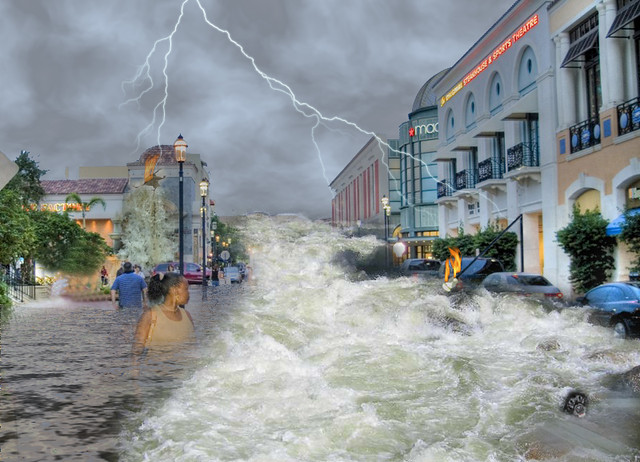 People who have known me over the years know I’ve always had a passion for responding to disasters. I can’t tell you why it is that when most people are running away, I have a tendency to run in – something I did before I became a Navy Corpsman (and learned how to do better because of). Later became a stab on what this is about by first enabling the capture of the data itself by enabling the communication. I even worked a year at a company that does weather warnings and other emergency communication, and was disappointed at how little analysis was being done on the data.
People who have known me over the years know I’ve always had a passion for responding to disasters. I can’t tell you why it is that when most people are running away, I have a tendency to run in – something I did before I became a Navy Corpsman (and learned how to do better because of). Later became a stab on what this is about by first enabling the capture of the data itself by enabling the communication. I even worked a year at a company that does weather warnings and other emergency communication, and was disappointed at how little analysis was being done on the data.
Years later, I now read ‘The Data of Disasters‘. Some folks have been working on some of the things that I had been thinking about and working on as I had time, and they seem to have gotten further. I’m excited about since the Alert Retrieval Cache was necessarily closed and didn’t gain the traction I would have liked – and open systems present issues with:
- Context: A post may be about something mentioned prior (a.k.a. ibid) but not tagged as such because of size limitations.
- Legitimacy: Whether a source is trustworthy or not, and how many independent sources are reporting on something.
- Timeliness: Rebuilding a timeline in a network full of shares/retweets can pose a problem because not everyone credits a source. If you go by brute force to find source date and times, you can pull on threads – but you’re not guaranteed of their legitimacy in unit time.
- Perspectives: GIS allows for multiple perspectives on the same event in unit time.
- Reactions: When possible, seeing when something at a site changes when all of the above can change in unit time.
It gets a bit more complicated from there – for example, languages can be difficult particularly with dialects and various mixes of languages (such as patois in the Caribbean, where I got into all of this). There’s also a LOT of data involved (big, quick and dirty data) that needs to be cleaned before any analysis can happen.
This is all why I envisioned it all to be a closed system, but the world believes differently, interjecting pictures of food with actual information of use. Like it or not, there’s data out there.
The expansion of data from a source over unit time, as mentioned in their paper on Crisis Informatics , is not something I had thought of. I imagine they’re doing great work up there at the Department of Information Science in the College of Media, Communication and Information at CU Boulder.
I’ll be keeping an eye out on what else they publish. Might be fun to toss a beowulf cluster at some data.